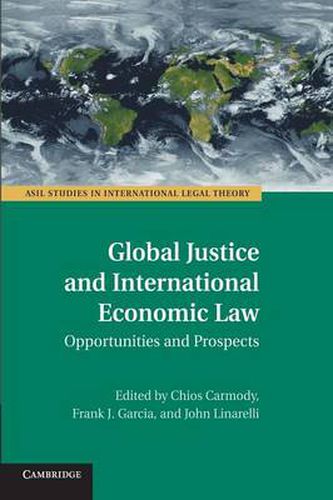Readings Newsletter
Become a Readings Member to make your shopping experience even easier.
Sign in or sign up for free!
You’re not far away from qualifying for FREE standard shipping within Australia
You’ve qualified for FREE standard shipping within Australia
The cart is loading…






Since the beginnings of the GATT and the Bretton Woods institutions, and on to the creation of the WTO, states have continued to develop institutions and legal infrastructure to promote global interdependence. International lawyers are experts in understanding how these institutions operate in practice, but they tend to uncritically accept comparative advantage as the principal normative criterion to justify these institutions. In contrast, moral and political philosophers have developed accounts of global justice, but these accounts have had relatively little influence on international legal scholarship and on institutional design. This volume reflects the results of a symposium held at Tillar House, the American Society of International Law headquarters in Washington, DC, in November 2008, which brought together philosophers, legal scholars and economists to discuss the problems of understanding international economic law from the standpoints of rights and justice, in particular from the standpoint of distributive justice.
$9.00 standard shipping within Australia
FREE standard shipping within Australia for orders over $100.00
Express & International shipping calculated at checkout
Since the beginnings of the GATT and the Bretton Woods institutions, and on to the creation of the WTO, states have continued to develop institutions and legal infrastructure to promote global interdependence. International lawyers are experts in understanding how these institutions operate in practice, but they tend to uncritically accept comparative advantage as the principal normative criterion to justify these institutions. In contrast, moral and political philosophers have developed accounts of global justice, but these accounts have had relatively little influence on international legal scholarship and on institutional design. This volume reflects the results of a symposium held at Tillar House, the American Society of International Law headquarters in Washington, DC, in November 2008, which brought together philosophers, legal scholars and economists to discuss the problems of understanding international economic law from the standpoints of rights and justice, in particular from the standpoint of distributive justice.